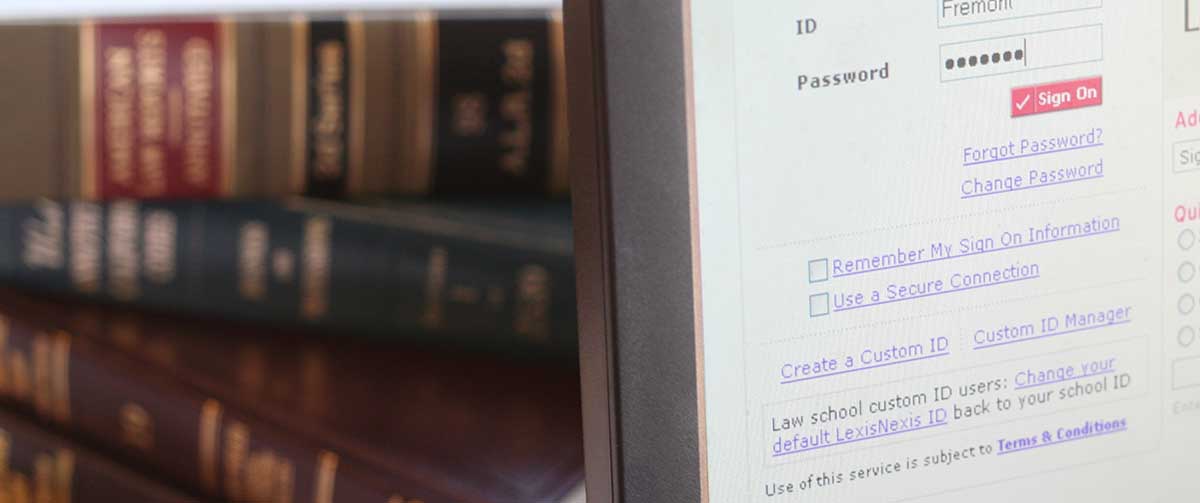Beyond Brockovich: A Day in the Life of a Paralegal
 You won’t always feel like Erin Brockovich (played by the timeless Julia Roberts): strutting into the office, bringing justice to hundreds, and dramatically seizing the multi-million dollar settlement from the mouth of the evil corporation, all while rocking five-inch stilettos. The day to day job duties of a paralegal can be very rewarding but might also be demanding at times. So just what does a paralegal do and for those new to this industry, what is a paralegal? Continue reading and we will break it all down in a simple and easy way to understand.
You won’t always feel like Erin Brockovich (played by the timeless Julia Roberts): strutting into the office, bringing justice to hundreds, and dramatically seizing the multi-million dollar settlement from the mouth of the evil corporation, all while rocking five-inch stilettos. The day to day job duties of a paralegal can be very rewarding but might also be demanding at times. So just what does a paralegal do and for those new to this industry, what is a paralegal? Continue reading and we will break it all down in a simple and easy way to understand.
What is a Paralegal?

A paralegal is an indispensable part of any legal system. The person in this position provides support to attorneys, law offices, government agencies and corporations by preparing legal documents, researching legal precedent, and performing investigative work on cases. Paralegals work in every area of law, offering a form of clerical support.
According to the American Bar Association (ABA), a paralegal is defined as “a person qualified by education, training or work experience who is employed or retained by a lawyer, law office, corporation, governmental agency or other entity and who performs specifically delegated substantive legal work for which a lawyer is responsible.” The National Federation of Paralegal Associations expands this definition by adding that paralegals possess such skills as:
- Recognition
- Evaluation
- Organization
- Analysis
- Communication
If you want to learn more about how to become a paralegal check out this article. Each of these skills is necessary when working with relevant facts and legal concepts as a paralegal.
What Does a Paralegal Do?

Paralegals play an integral role in the delivery of legal services to individuals or groups. While paralegals certainly perform administrative tasks, many paralegals go beyond this and assume much of the employing lawyer’s workload. To do this, paralegals need an advanced understanding of the legal system. By taking on part of the attorney’s workload, he or she is freed up to focus on more detailed work. This will also trickle down to save clients’ money, as paralegal services are not as costly as that of lawyers.
Day-to-day, paralegal work can vary depending on the place of employment. Typical tasks performed by paralegals include:
- Case management, including coordinating all aspects of a case and ensuring the appropriate steps are taken in a timely manner
- Drafting correspondence
- Calculating calendaring deadlines for filing documents
- Using an automation system and computerized support to prepare cases
- Drafting pleadings, document responses and discoveries
- Contacting and conferencing with clients
- Analyzing and summarizing documents
- Fact checking
- Performing legal research
Paralegals may also perform a variety of clerical and administrative duties as needed, especially if they work in a small office. Despite the job often involving clerical work, paralegals typically earn higher wages than legal secretaries.
[contact-form-7 id=”31766″ title=”Be a better person of your self form” html_class=”gray-form”]
Can Paralegals Specialize in the Field?
Many paralegals have specializations within their field. For example, litigation paralegals will have considerable work related to trials, while in-house legal staff for a corporation will spend much of the time drafting board resolutions and filing documentation related to business needs. Paralegals are often employed by lawyers to perform many different specialty tasks, including:
- Case planning, development, and management
- Attend legal functions such as the executions of wills, real estate closings, depositions, court or administrative hearings and trials with the attorney
- Legal research, fact gathering and information retrieval by traditional systems such as libraries as well as computer-based research
- Represent clients before a state or federal administrative agency, if permitted by law
- Interview clients and maintain contact with them, under the attorney’s supervision
- Draft and sign legal correspondence that does not include legal opinion or advice
- Prepare for and assist at trial
- Draft and analyze legal documents
- Locate and interview witnesses
- Summarize documents and proceedings
What is the Job Outlook for Paralegals?

At this point, you might be wondering what does a paralegal make? If you are looking for a lucrative career opportunity this career option might be a good one to pursue. So just what does a paralegal earn? According to the Bureau for Labor Statistics, it is estimated that between 2016 and 2026 that the projected percent change in employment for paralegal and legal assistants will grow 15%. The 2017 median pay was $50,410- per year with typical entry-level education being an Associates degree.
Want additional paralegal salary statistics? If you’re looking for a more specific break down on what does a paralegal make in California, be sure to read about some of the highest paying states for Paralegals by clicking here.
What Type of Education Do I Need to Become a Paralegal?

According to the Bureau for Labor Statistics, the typical entry-level education level for paralegals is an associate’s degree. Most paralegals and legal assistants have an associate’s degree in paralegal studies or a bachelor’s degree in another field and a certificate in paralegal studies. In addition to holding a degree and/or certification, paralegals should be good communicators, strong writers, and possess solid interpersonal skills like conflict resolution.
If you are interested in a career as a paralegal, speak with the experts at Fremont University today. Simply fill out the form on this page to get started!
The Daily Life of a Paralegal
As a future paralegal, you likely have a number of questions such as what does a paralegal manager do, what does a paralegal assistant do, what are the duties of a paralegal and so on. While these are all great questions lets take a step back and look at some tips that can help you become more successful in this profession.

Maintain a positive attitude
Maintaining a positive attitude when faced with challenges will help you stay on track. If you are able to adopt the right mindset, it will go a long way when it comes to staying motivated. Train your mind to focus on conquering setbacks instead of letting worry or doubt consume you. Keep in mind that if you believe you will accomplish your goals, you are more likely to take the necessary actions to do so.
Acknowledge your progress
Give yourself credit for the progress you have made thus far so you approach new tasks with a positive attitude. Recognizing your past successes can serve as a great motivator to keep pushing yourself to achieve your goals. Make a list of your recent achievements, whether it’s receiving an “A” on your last Math test or completing a term paper early. Being reminded of past accomplishments can inspire you when you are lacking motivation.
Stay organized
Staying motivated can be difficult if you’re not organized. Organize your study space and even your computer files to help you think clearly. By staying organized, you are less likely to be distracted by items in your workspace that are not conducive to studying or completing homework assignments. Clear your work-space before each study or homework session by placing any non-essential items in a container or drawer until you need them.
Be flexible
Create a schedule for completing tasks and accomplishing goals that is flexible. This will prevent you from feeling overwhelmed when something unexpected comes up. Re-evaluate your plan on a regular basis to determine if you need to make adjustments based on your current responsibilities, whether it’s a job, family, or your social life.
Eliminate distractions
Whether it’s a noisy neighbor or the need to check your Facebook page every five minutes, distractions can make you feel less motivated. Eliminate as many distractions as possible and find a quiet study area that allows you to concentrate without interruptions. Turn off or silence electronic devices so you won’t feel tempted to check them. Make an agreement with yourself that you can’t check your Facebook page or other social media sites until you have finished your assignments and are done studying.
Eliminate distractions
Although many people have the misconception that it’s best to work nonstop until a task is complete, it can be difficult to stay motivated if you don’t take a break periodically. Take time for yourself in the middle of a big project or tedious task to do something you enjoy. You will feel rejuvenated and approach tasks with a fresh mind afterward.
If you want a degree that will lead to stable career opportunities, look no further than Fremont University. Fremont University offers in-demand degree programs in an ABA paralegal certification. An online Degree Completion Program is available in paralegal studies that allow students to transfer previously-earned college credits toward a bachelor’s degree that takes just 15 months to complete.
Advice From An Experienced Paralegal
The truth is, being a paralegal is tough. Having been in the legal field since 1980, and a supervising senior paralegal since 1995, Fremont University asked that I provide its students with what my day consists of. I work for Super Lawyers, David Cohn and Matthew Clark of Chain | Cohn | Stiles, a prominent personal injury law firm. Working under such notable trial attorneys has helped me to develop a strong, foundational skill-set that has enhanced my ability to provide a wide range of litigation support for my attorneys. When you work with the best, you become the best at your profession. You absorb your leader’s skills, knowledge, writing style, analytical ability, law practice approaches, and work habits.
I am of the belief that leadership should set an example. Since I am a leader setting an example to the support staff, there are certain habits that I endeavor to project to the staff to absorb and apply to their work life. A typical day for me begins by arriving to work between 7:15 and 7:30 a.m. By the time the staff arrives at 8:00 a.m., I have already had my coffee, reviewed my dockets, checked the attorneys’ calendars, checked my e-mail, and have started on my day’s deadlines. This also allows me some quiet time before the day’s chaos, and to help the attorneys with last-minute morning court appearances. A typical week will include working through lunch a few days out of the week, and not leaving at 5:00 p.m. until I feel the attorney doesn’t need my help. My work day is filled with constant interruptions. When you work with a large legal team, every minute counts in order to meet your deadlines.
Each member of the legal team, from the attorney to the file clerk, is integral and interdependent. There is no room for a weak link in the chain of a team. The qualities that every successful paralegal possesses is a strong work ethic, strength of character, superb knowledge of their given area of law and legal technology, and a desire to provide the highest quality of work for the benefit of the client. A great paralegal has a true love of the profession, a desire to help people, and the ability to mentor rising stars. I recall working on a complex wrongful death case in cooperation with a very prominent Los Angeles attorney. For over a year, the text messages and e-mails from this attorney started between 5:00 and 6:00 a.m. and didn’t stop until after 10:00 p.m. I often thought this attorney never slept!
I had telephone conversations with this attorney on Easter, and was pulled off the golf course on a Saturday to come into the office to help finalize an opposition to an important motion. The end result was worth the effort with a settlement in the millions, and the family of the decedent was thankful that justice was done. On another occasion, I had been working with my attorneys to finalize an Opposition to a Motion for Summary Judgment. A Motion for Summary Judgment is a dispositive motion; meaning if it is granted, it disposes of the legal issue requested in the motion. Oppositions of this nature are very time consuming, include volumes of exhibits and are supported by multiple required pleadings, such as a Response to Defendant’s Separate Statement of Undisputed Facts. Suffice it to say, it is an enormous project that takes planning to complete. The court’s civil window on the day the Opposition was due closed at noon. Thankfully, I prepared the volume of evidence the day before and already had it copied, collated, and labeled. On the due date, the attorneys did multiple revisions and finally gave me the green light to wrap it up. It was 10:45 a.m. I was honestly concerned that the documents would not be filed by noon. The Response to the Separate Statement alone was over 120 pages in length.
When a crisis of this magnitude erupts, the whole legal team pulls together. Everyone stopped and helped print, copy, staple, hole-punch, create labels, and literally run to court (luckily the court is across the street). In the end, the Opposition, with the supporting pleadings, was filed before noon with 10 minutes to spare. We all let out a big sigh of relief!
As a paralegal student at Fremont University, you must ask yourself: Do you want a career where you will make a difference to others, or do you want a job where you work 9 to 5 and go home? Do you want a career that challenges you intellectually, or do you want to do the same thing every day? Do you want a career that provides job skills that are employable, or do you want your employment opportunities to be limited? Do you want a career where your colleagues support your success, or do you want to be on your own? Do you want a career where your skills are developed or do you want to be unstimulated? I encourage you to complete the Fremont University paralegal program. It will change your life, and the life of your family: You won’t regret it!
ABOUT Barbara Hass:  Barbara Hass is an Advanced Certified Paralegal in Discovery, PI-Wrongful Death, and Trial Practices; and a California Advanced Specialist in Civil Litigation. She has been recognized by her peers as a 2012 Paralegal Gateway Superstar, and the recipient of the 2011 and 2003 Kern County Paralegal of the Year. Barbara is the owner and author of The California Litigator, which provides a meaningful assortment of legal articles, useful sample documents, a helpful gadget, resources, and tips on matters of professional interest. Barbara is the creator of Deadline Direct™, a gadget for your Microsoft Windows 7 desktop. More information is available at https://www.thecalifornialitigator.com.
Barbara Hass is an Advanced Certified Paralegal in Discovery, PI-Wrongful Death, and Trial Practices; and a California Advanced Specialist in Civil Litigation. She has been recognized by her peers as a 2012 Paralegal Gateway Superstar, and the recipient of the 2011 and 2003 Kern County Paralegal of the Year. Barbara is the owner and author of The California Litigator, which provides a meaningful assortment of legal articles, useful sample documents, a helpful gadget, resources, and tips on matters of professional interest. Barbara is the creator of Deadline Direct™, a gadget for your Microsoft Windows 7 desktop. More information is available at https://www.thecalifornialitigator.com.
Related Content:
What does a paralegal do in court?
How long does it take to become a paralegal?
What is a paralegal salary?

